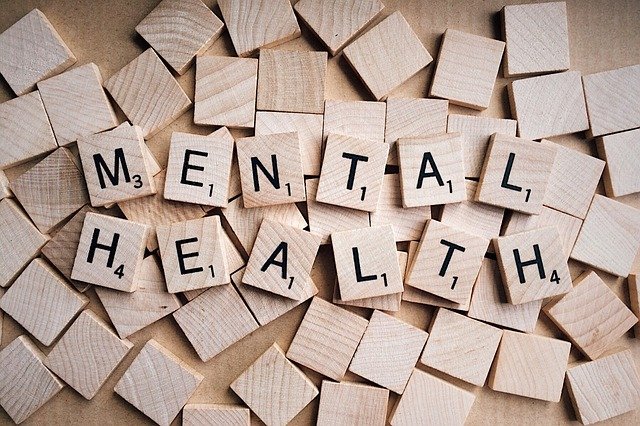
Across the United Kingdom, one in four people are subject to a mental health disorder such as depression and anxiety every single year.
While much research concludes that mental health disorders have adverse ramifications on the health and well-being of those affected, many individuals across the country are unaware of how mental health and obesity are directly influenced by one another.
To help you understand how mental health contributes to obesity, and how obesity contributes to mental health, we have delved into how mental health and obesity affect each other below.
How Does Mental Health Affect Obesity?
When individuals find themselves struggling with a mental health disorder, they will turn to various resources to reduce the pessimistic thoughts and feelings experienced. For some, drugs and alcohol will be consumed, while others may take comfort in food.
Sadly, just as consuming substances to relieve the feelings associated with mental health disorders can cause individuals to develop addictions, taking comfort in food and emotional eating is likely to increase an individual’s risk of becoming obese.
When considering mental health disorders, many turn their thoughts to anxiety, depression and post-traumatic stress disorder. However, eating disorders such as anorexia, bulimia and binge eating disorder are all considered mental health disorders.
When considering eating disorders such as binge eating disorder, individuals struggling are more likely to be at risk of becoming obese due to overconsumption of food.
How Does Obesity Affect Mental and Emotional Health?
Regrettably, just as mental health can affect obesity, obesity can cause individuals to become subject to various mental and emotional health problems.
The NHS confirms people suffering from obesity are at at risk of developing depression, anxiety and decreased self-esteem. These mental health disorders can additionally put individuals struggling with obesity at greater risk of developing an eating disorder such as anorexia.
Mental Health and Obesity in Adults
Across England, anxiety, depression, bipolar disorder, post-traumatic stress disorders and eating disorders cripple the lives of one in six adults every week. In most recent years, an increase in the number of adults admitted to hospital due to mental health disorders has surged, as have the number of lives regrettably lost to suicide.
When considering obesity in adults, at least 63% of adults in England are thought to be overweight. Sadly, the number of adults that are obese in England has caused a more significant number of individuals to experience the health risks associated with obesity.
As touched on above, mental health disorders including anxiety, depression and binge eating disorder, can increase the likelihood that an adult will be at risk of becoming obese.
Likewise, the number of adults in England struggling with obesity has increased the number of adults that are simultaneously affected by mental health and obesity. In fact, Obesity Action reports that obesity is more prevalent in men and women when a mental health condition is present.
Mental Health and Obesity In Children
Contrary to belief, mental health and obesity do not only impair the lives of adults. In England alone, millions of children feel the ramifications of mental health and obesity. It is estimated that one in ten children experience a mental health disorder, while one in five children are clinically diagnosed as obese.
Research has previously determined that children who struggle with obesity are much more at risk of developing severe health conditions in later life.
Although many automatically think of physical health conditions such as diabetes, heart problems and organ failure, health conditions can also include mental health disorders such as anxiety, depression and various eating disorders. For example, children that are subject to bullying due to their weight are much more at risk of developing an eating disorder.
Similarly, children that suffer from mental health disorders in their younger years are at greater risk of becoming obese later in life due to the emotional toll that conditions, including anxiety, have on them.
The Correlation Between Mental Health and Obesity
As we can see from the above research, there is a clear correlation between mental health and obesity.
Those struggling with mental health disorders are more likely to also be affected by obesity. Similarly, both adults and children that struggle with obesity are at greater risk of suffering from a mental health disorder.
Although the correlation between mental health and obesity is apparent, this is not to say that every child and adult in England will concurrently struggle with a mental health disorder and obesity.
What Support Is Available For Individuals Struggling With Mental Health and Obesity?
If you are struggling with mental health and obesity, there is a wealth of support and treatment readily available for you to take advantage of.
Across the country, many rehabs can help mitigate the overall consequences of your mental health disorder and minimise the health complications associated with obesity.
If rehab is right for you, you will be provided with various psychological and well-being therapies that will enable you to determine the factors contributing to your mental health and obesity.
If you are struggling with a mental health disorder as a result of obesity, well-being therapies will gradually assist you in making healthy lifestyle changes, while psychological therapy will support you in reducing the overall impact your mental health disorder has on you.
Likewise, if you have become obese due to the development of a mental health disorder, therapy can help you uncover the factors contributing to your mental health disorder. This will ultimately enable you to devise coping strategies that will help diminish your mental health disorder and encourage you to adopt a healthy lifestyle.
Contact Action Rehab Today
From offering advice and guidance to referring you to a suitable rehab, at Action Rehab, we can provide a wealth of support to individuals struggling with mental health and obesity.
If you would like to find out what we can do to support you, please do not hesitate to contact us today.
You can call us on 0151 268 6992, or you can email info@action-rehab.com.
Sources
https://www.england.nhs.uk/mental-health/
https://www.nhs.uk/conditions/obesity/
https://www.mind.org.uk/information-support/types-of-mental-health-problems/statistics-and-facts-about-mental-health/how-common-are-mental-health-problems/#:~:text=1%20in%204%20people%20will,week%20in%20England%20%5B2%5D.
https://www.bupa.co.uk/health-information/childrens-health/obesity-children#:~:text=The%20UK%20has%20one%20of,aged%2010%20to%2011%20were.
https://www.mind.org.uk/information-support/types-of-mental-health-problems/statistics-and-facts-about-mental-health/how-common-are-mental-health-problems/#:~:text=1%20in%204%20people%20will,week%20in%20England%20%5B2%5D.
https://digital.nhs.uk/data-and-information/publications/statistical/statistics-on-obesity-physical-activity-and-diet/england-2020/part-3-adult-obesity-copy
https://www.obesityaction.org/community/article-library/obesity-and-mental-health-is-there-a-link/
https://www.euro.who.int/en/health-topics/noncommunicable-diseases/mental-health/news/news/2017/10/world-obesity-day-understanding-the-social-consequences-of-obesity#:~:text=Stigma%20is%20a%20fundamental%20cause,and%20avoidance%20of%20medical%20care.
Posted on Friday, January 22nd, 2021 at 10:03 am in Latest News.








 Call Us
Call Us Contact Us
Contact Us